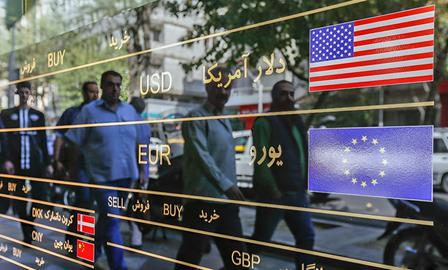Sarosh Zaiwalla has an unusual career. The United Nations, the United States, the European Union and individual countries, such as Britain, all impose sanctions on governments, companies and/or individuals that they think should be punished for their actions. In Iran’s case, this has meant any alleged links to the country’s illegal nuclear program. Mr Zaiwalla’s job is to represent those who feel they have been unfairly blacklisted.
A trained lawyer specializing in international arbitration and deemed to be a "thorn in the sides of Western governments," his clients have included Bank Mellat, Bank Tejarat, Iran's national shipping and oil companies and other blacklisted companies and individuals from countries including India and China. His London-based law practice is currently working on the Bank Mellat case on account of its alleged connection to nuclear proliferation. However Mr Zaiwalla has a different outlook on the issue and says a lot of the sanctions cases he has worked on are devoid of evidence and need to be overturned. He spoke to IranWire about some of his clients and their cases and how decisions can be reversed.
Which Iranian clients have you represented? And what did they do to be blacklisted?
In terms of big companies, we defended Bank Mellat, Bank Tejarat, and several other big Iranian clients. And then in terms of individuals, there was Dr. Divandari, who was chairman of Bank Mellat. There was a professor at Tehran University who specialized in privatization law that was blacklisted so we defended him and we even represented a British citizen that was blacklisted. Through the British courts, we succeeded in getting the British government to pay him damages and cost.
They are all alleged to have been involved in Iran’s nuclear proliferation, which is prohibited by the United Nations.
What happens to a blacklisted company? What’s the process of getting the decision reversed?
They’re restricted because no one can deal with them and if an individual or company does then they will be punished. So, for example, we’re currently representing Bank Mellat and to do this we need a license from her Majesty’s Treasury. We require a license because we can’t deal with them directly for our payment otherwise.
To get it reversed, you have to challenge them in court. If you’re challenging the British government, it’ll be in the British courts. First the High Court, then the Appeals Court and lastly, you can try the Supreme Court. If it’s a EU sanction, then you go to the European court in Luxembourg.
American sanctions are very difficult to challenge in court though. As I was told by the sanctions enforcing agency, sanctions are imposed by presidential orders that are signed by the president and you can’t take him to court. Therefore you can only appeal to him to remove the blacklisting. But the problem is that if the US finds that someone is doing business in Iran then it will also blacklist that person in the US so many people feel it’s not worth engaging with Iran even if someone other than the US hasn’t sanctioned them. For instance, the British banks are terrified to have customers that trade with Iran because they have branches in New York and they’ll be fined if the US finds out.
Can you tell me about the Bank Mellat case?
We won first at the EU court and then at the Supreme Court. The EU accepted that sanctions were unlawful against the bank and the Supreme Court agreed that the bank was unlawfully listed for irrational reasons so the Supreme Court referred the matter to the High court to assess damages. This is what I will go to trial for next year. Bank Mellat has a claim of 4 billion dollars against the UK government. The British government is appealing because Bank Mellat is also challenging its 2012 and 2013 listing. The UK says it has secret evidence against the bank but we succeeded before because that evidence didn’t exist.
How long do sanctions cases take?
About 12 to 18 months in which time these companies can’t do anything but if they succeed they can claim damages like Bank Mellat.
Have things changed for you during the last few months of nuclear talks?
There’s been no change at all because we’re an international law firm. Sanctions in my view are a good weapon but they need to be enforced in a fair and reasonable manner. In the old days when a country wanted to punish another, they would go to war but now they use sanctions. They’re an alternative to war. But they shouldn’t affect the businesses of innocent citizens. Sanctions should punish governments and officials.
Related articles:
What Does The Deal Mean for Iran's Economy?
Sanctions: When Business is Good
To read more stories like this, sign up to our weekly email.
visit the accountability section
In this section of Iran Wire, you can contact the officials and launch your campaign for various problems





















comments